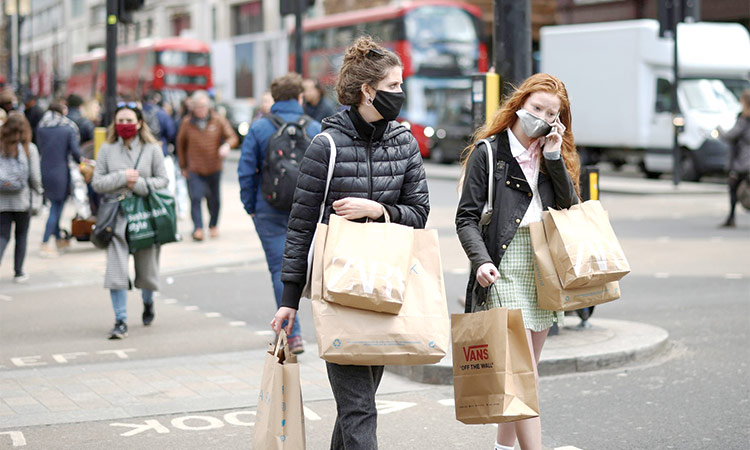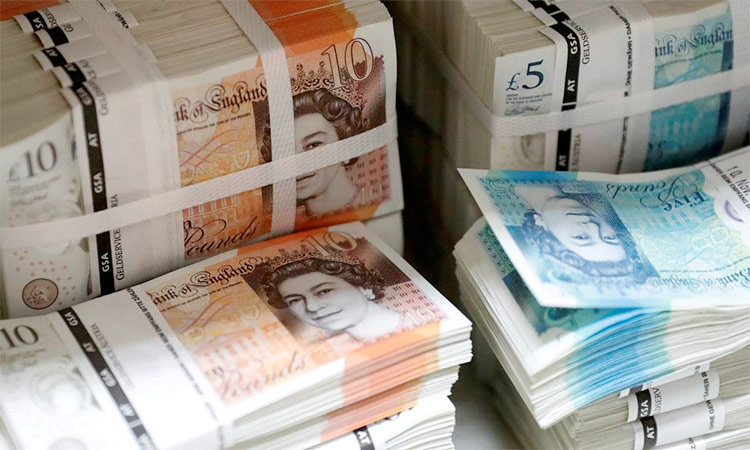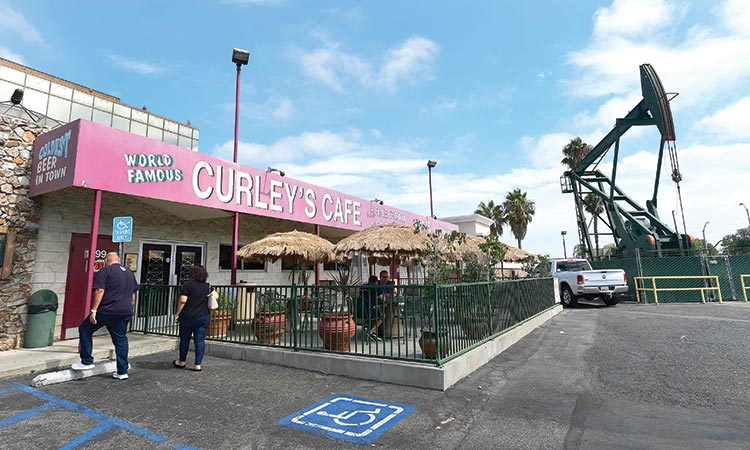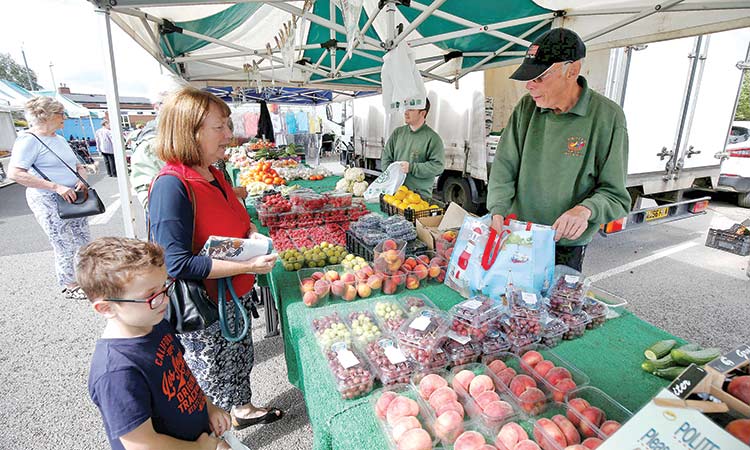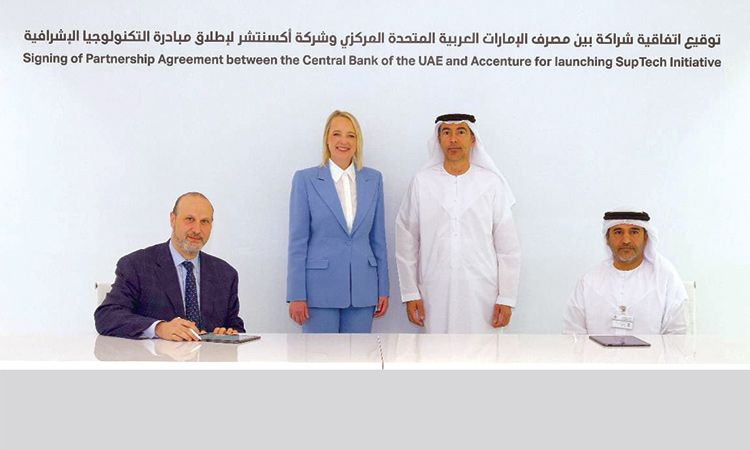UK consumer, business morale touch five-month high: Surveys
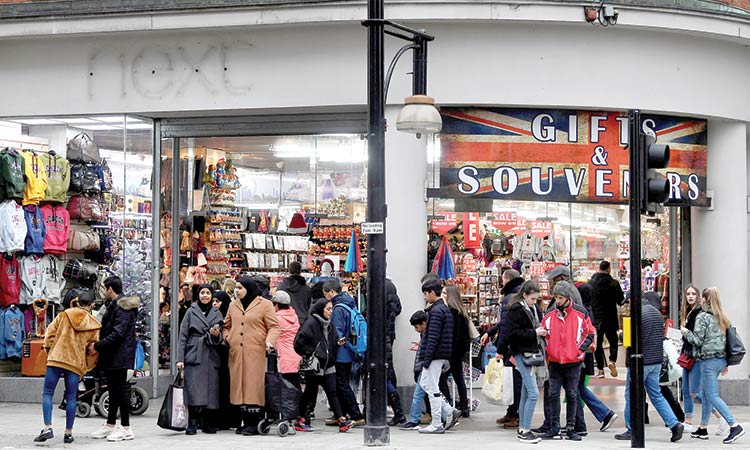
Shoppers at Oxford Street in London. Reuters
Consumer confidence rose to -11 in December from -14 in November, according to the long-running survey from market research firm GfK. A Reuters poll of economists had pointed to an unchanged reading on the month.
Similarly, a Lloyds Bank gauge of business confidence also rose to its highest level since July at 10%, up a point from last month. Both surveys were conducted before the result of the Dec.12 election in which Johnson secured a big majority in parliament, removing some uncertainty hanging over the British economy.
“Despite official warning signs about the flatlining of Britain’s economy, we know that record-high employment and below-target levels of inflation are helping to boost consumers’ expectations for next year,” Joe Staton, client strategy director at GfK, said.
For businesses, growing optimism about trading prospects contributed to a rise in morale, Lloyds Bank said.
“There is now clarity over the UK’s departure from the EU, but the focus will turn to whether a new trade agreement can be negotiated during the transition period which currently runs until the end of next year,” said Hann-Ju Ho, a senior economist at Lloyds.
British shoppers kept a tight grip on their wallets last month as retail sales grew at their slowest annual pace since April 2018 amid uncertainty about Brexit and December’s election.
Thursday’s figures from the Office for National Statistics were collected before Black Friday sales promotions, but the ONS said it was confident the slowdown in year-on-year sales growth to 1.0% in November from October’s 3.1% was not distorted by the timing. Economists polled by Reuters had expected a smaller slowdown in growth, to 2.1%.
Spending by shoppers had been supporting the overall economy for most of the time since 2016’s Brexit referendum; Thursday’s figures added to other signs of a slowdown in the run-up to last week’s election. Excluding fuel purchases, retail sales growth was the weakest since October 2017.
Retail sales in November were down 0.6% from October, and have now failed to show any monthly growth for four months in a row - the longest such run since at least 1996. “All main sectors saw their sales fall with the exception of food stores,” ONS statistician Rhian Murphy said. Sterling fell briefly on the data, but most analysts are more focused on the political outlook. Prime Minister Boris Johnson’s sweeping election victory has eliminated the risk of a disruptive no-deal Brexit on Jan.31, removing some of the uncertainty hanging over the British economy.
But a hit to trade remains possible at the end of 2020, when Johnson insists a post-Brexit transition period will end, regardless of whether or not he can negotiate a trade deal with the European Union before then. This year, the November retail sales sample period did not include sales promotions in the days running up to Black Friday, which fell on Nov.29, but the ONS said it was confident its seasonal adjustment process accounted for this.
A fuller picture will be available once November’s sales can be compared with December data. “At face value, November’s further drop in retail sales is pretty concerning,” said Thomas Pugh, UK economist at consultancy Capital Economics. But he doubted whether the ONS methodology fully captured the effect of Black Friday not being included in November’s data, and predicted a pick-up in December. “Even so, given the falls in October and November, it will be very difficult for retail sales volumes to grow at all in Q4 as a whole. So not a very merry Christmas for retailers.”
A separate survey from the Confederation of British Industry suggested retail sales stabilised this month after months of decline. “While stagnating sales volumes in December are hardly something to cheer about, the figures at least provide hope that the recent period of falling sales has passed,” CBI chief economist Rain Newton-Smith said of its figures.
The BoE is expected to keep rates steady at 0.75%, but economists expect two policymakers - Michael Saunders and Jonathan Haskel - to vote again for a cut becaus UK employers keep up hiring, jobless rate back to near 45-year low.
The number of people in work in Britain unexpectedly rose in the three months before the missed Oct.31 deadline for Brexit, according to data which suggests the labour market was retaining some of its strength.
The number of people in employment rose by 24,000 to 32.8 million in the August-to-October period, bucking the median forecast for a drop of 10,000 in a Reuters poll of economists.
Reuters
